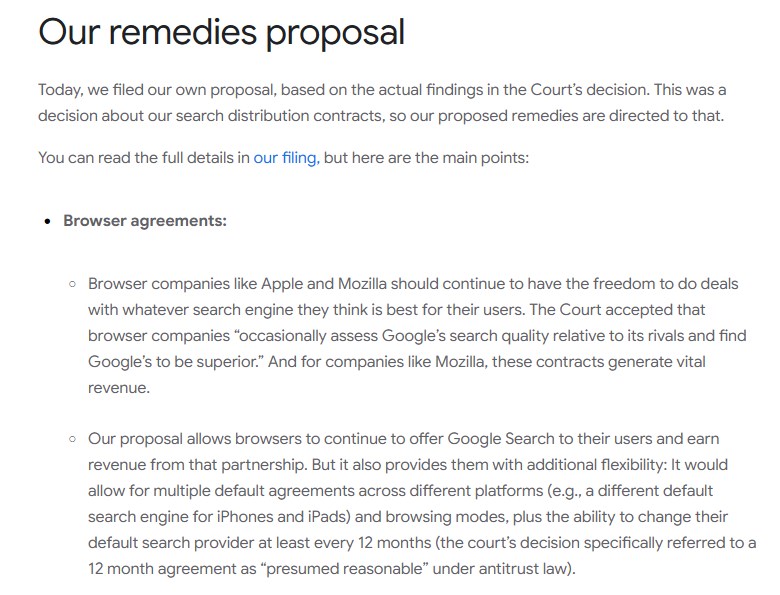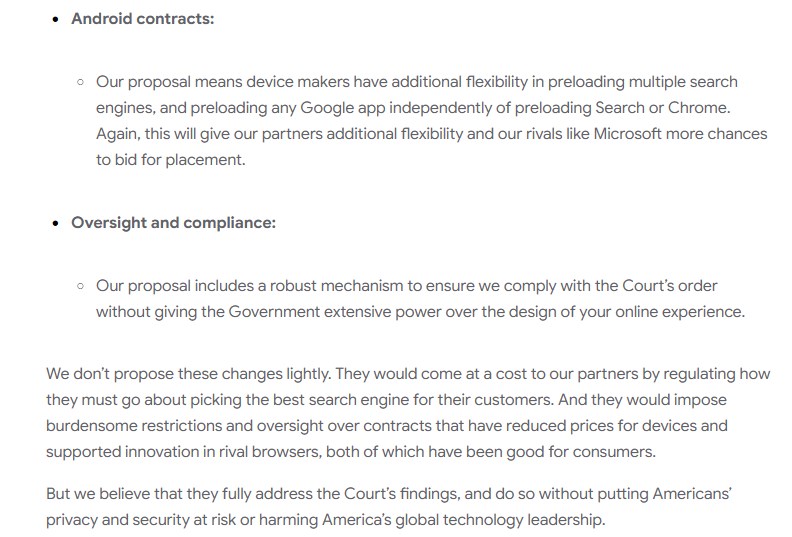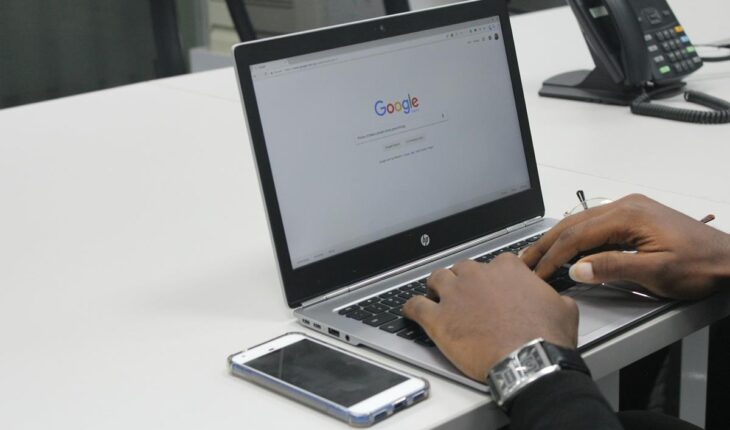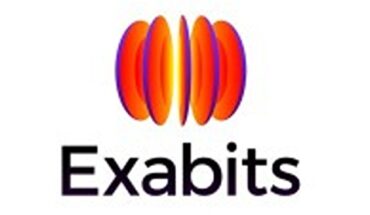The U.S. Department of Justice’s antitrust trial vs Google just became more interesting. Google has proposed some remedies ahead of a hearing in April 2025.
In case you missed it, a federal judge found Google to be breach antitrust laws, accusing the company of building and maintaining an illegal monopoly in the search engine industry. While it prepares for the two-week hearing next year, Google ran into further problems, when it came to light that the DoJ was planning a proposition to break up Google, which could force Google to sell Chrome, and also split Android from the company.
Google obviously likes none of these, it believes the changes could harm the security and privacy of users, It has proposed some remedies for the Court to consider before the appeal begins. This isn’t surprising, it had to be done, any company has to look at its best interests first.
Google suggests alternative remedies in the lawsuit against the DoJ
Let’s take a closer look at the proposals. The first one says that “Browser companies like Apple and Mozilla should continue to have the freedom to do deals with whatever search engine they think is best for their users.”

I’m going off-topic for a bit here. Google Chrome is one of the founding members of the Browser Choice Alliance, a coalition of browser makers that seek to allow users the right to use their browser of choice on Windows. Allow me to quote what Google Chrome’s VP and GM said about Microsoft’s unfair practices to promote Edge on Windows devices.
“Consumers have many choices when it comes to browsers. When they choose to download a browser, their choice should be respected. We’re proud to be part of a group advocating for consumer choice and respect.”
Now, when you switch the topic to search engines, Google does exactly what Microsoft has been accused of. If Microsoft is wrong to decide that Edge is the best experience for the user, then Google cannot decide that it is the best search engine either. You see, it is not the user’s choice, it is a revenue sharing partnership between two companies.
Back on topic. Browser companies and Apple already have the freedom to make deals with whomever they wanted. Why didn’t they? Not everyone has pockets that run deep as Google’s to make deals with OEMs. Google argues that the Court had accepted that browser companies assess the quality of various search engines, and find Google to be superior to its rivals. Once again, this lawsuit is not about the quality of a service, but about unfair practices by the company, which has been deemed to be an illegal monopoly, and its agreement with Apple which is reportedly worth billions played a crucial role in the outcome.
Think about it, let’s say a different search engine went to Apple or Mozilla and placed an offer on the table. And then Google comes with a ridiculously bigger offer, who is going to win this bidding war? This is how the company has dominated the search engine market. This is not speculation, Microsoft even tried to sell Bing to Apple, and failed. Google is literally out muscling the competition with these exclusive contracts, which in turn restricts other search engines from growing. It’s not a fair fight, which is the whole point of this antitrust lawsuit. How will this proposal be beneficial to other search engines?
Google’s second proposal suggests browsers should be allowed to partner with Google Search and earn revenue from the deal. But it also says that browser makers should be allowed to sign multiple default agreements across different platforms, such as a different search engine for iPhones and iPads. This proposal also suggests an option to change the default search provider once every 12 months.
The article on the company’s blog also mentions that it Google achieved its status as the best search engine, and that people use Google not because they have to, but because they want to. Does Google offer freedom for Android users? Buy an Android phone, and you will find that it is preloaded with a ton of Google apps out of the box, many of which are set as the default app for their respective category e.g. Messages, Dialer, Chrome, Google Search. Where does user choice factor in here?
Google has also proposed a change that could impact Android device makers. It says that OEMs can preload multiple search engines, and preload any Google app independently of preloading Search or Chrome.

Well, a lot of people don’t know how to change the default search engine, this was stated by executives of rival search engines during their testimony against Google. While the proposal about preloading other search options sounds interesting, would it work? It might if it was implemented like this: Display a prompt on the screen (when they set up the device), asking the user to choose the search engine they want to use, without highlighting (pre-selecting) a specific choice. Another thing that could play an important role is for operating systems and browsers to make it easier to change the search engine or the default browser, don’t hide the option under multiple menus and screens.
Google also acknowledged its partnership with Mozilla’s, it did so earlier too, which led to users speculating about Firefox’s future, and whether this would be the end of Firefox if the deal with Google is terminated. The Mountain View company has highlighted that the contract with Google generates vital revenue for Mozilla. Nobody is denying that, but this sympathy card cannot be played to right a wrong. I don’t think this argument has any legs to stand in a court of law. Bending the rules of an antitrust law to benefit a single company is foolish. Mozilla will probably have to find another sponsor.
As someone who has been using Firefox for over 15 years, I will admit that while I’m slightly concerned about whether Mozilla may or may not survive, I think that Firefox will endure simply because the browser is open source. It will thrive like Linux has.
All things considered, I doubt these proposals would be taken seriously by the court. They barely change anything, all they suggest is that Google should be allowed to do what it is doing. Nobody is going to accept that.
Advertisement





